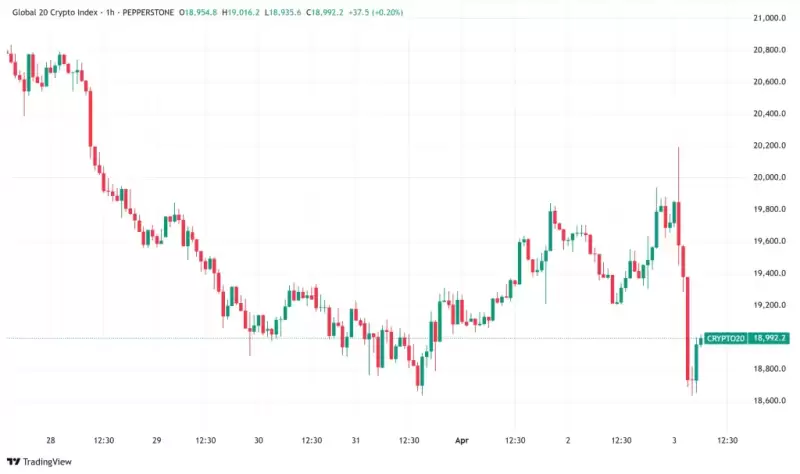 |
|
 |
|
 |
|
 |
|
 |
|
 |
|
 |
|
 |
|
 |
|
 |
|
 |
|
 |
|
 |
|
 |
|
 |
|
Cryptocurrency News Articles
Bitcoin: Ponzi Scheme or Legitimate Investment? A Comprehensive Analysis
Apr 03, 2024 at 09:25 pm
Delve into the contentious debate surrounding Bitcoin's alleged Ponzi scheme characteristics. Examine criticisms, the definition of a Ponzi scheme, and compelling arguments against classifying Bitcoin as one. Despite allegations of being a scam, Bitcoin's finite supply, decentralized network, intrinsic value, and volatile market behavior set it apart from traditional Ponzi schemes. However, risks and considerations, including security vulnerabilities and scam tactics, should be taken into account when investing in cryptocurrencies. Ultimately, the Ponzi scheme comparison remains a matter of perspective, warranting thorough research and informed decision-making.

Unveiling the Bitcoin Ponzi Scheme Debate: A Comprehensive Analysis
Introduction
The world of cryptocurrency has been abuzz with controversy, particularly revolving around the claims that Bitcoin, the largest digital asset by market capitalization, bears striking similarities to a Ponzi scheme. This debate has ignited a heated discussion, pitting vocal critics against staunch advocates of the digital currency. This in-depth analysis delves into the crux of the Bitcoin Ponzi scheme debate, examining both sides of the argument with compelling evidence and thorough analysis.
Understanding Ponzi Schemes
A Ponzi scheme, named after Charles Ponzi, an infamous Italian businessman, is a fraudulent investment operation that promises exceptionally high returns to attract investors. The scheme operates by using the funds from new investors to pay off earlier investors, creating an illusion of profitability. However, these schemes are inherently unsustainable, as they rely on a constant influx of new investors to maintain the facade of legitimacy. Without a steady stream of new capital, the scheme inevitably collapses, leaving investors with significant losses.
Allegations Against Bitcoin
Critics of Bitcoin draw parallels between the digital currency and Ponzi schemes, arguing that its value is primarily driven by speculation rather than any tangible asset or genuine economic use. They assert that Bitcoin lacks inherent value and is solely dependent on the belief that its price will continue to rise, attracting new investors who buy into the promise of quick profits. This belief, they argue, resembles the speculative frenzy that fuels Ponzi schemes.
Arguments Against the Ponzi Scheme Allegation
Proponents of Bitcoin vehemently reject the notion that the digital currency is a Ponzi scheme, citing several key distinctions. First, they emphasize Bitcoin's finite supply, capped at 21 million coins. This scarcity, they argue, differentiates Bitcoin from Ponzi schemes, which require a continuous inflow of new investment to sustain the illusion of profitability. The limited supply creates a sense of scarcity, which, according to supporters, gives Bitcoin intrinsic value.
Secondly, Bitcoin's decentralized nature is cited as a fundamental departure from the modus operandi of Ponzi schemes. Bitcoin operates on a blockchain network, a distributed ledger system that records and verifies transactions through a decentralized network of computers, eliminating the need for centralized control. This transparency and decentralization contrast sharply with Ponzi schemes, which rely on opaque operations and centralized control over investor funds.
Examples of Crypto Ponzi Schemes
While it is essential to distinguish between genuine cryptocurrency projects and scams, the decentralized nature of crypto has indeed provided a fertile ground for fraudulent schemes. Infamous examples include OneCoin and Bitconnect, which lured investors with promises of substantial returns on fake cryptocurrencies. These schemes eventually collapsed, leaving investors with significant losses.
Risks and Considerations
Investing in cryptocurrency carries inherent risks. While the potential rewards can be enticing, investors should proceed with caution. Not all cryptocurrencies and trading platforms offer the same level of security, and some newer coins may be particularly vulnerable to Ponzi scams. Additionally, there is no safety net for lost or stolen crypto assets, highlighting the importance of thorough research before investing.
Conclusion
The debate surrounding the nature of Bitcoin as a Ponzi scheme remains a contentious issue. While skeptics point to its speculative nature and regulatory challenges, proponents emphasize its finite supply, decentralized governance, and potential as a store of value. Ultimately, the decision of whether or not to invest in Bitcoin is a personal one, requiring careful consideration of the risks and potential rewards.
Additional Considerations
- The Role of Scams: The crypto community has been targeted by a variety of scams, including phishing attempts and fake investment opportunities. It is crucial for investors to remain vigilant and conduct thorough research before engaging with any crypto-related platforms or individuals.
- Regulation and Enforcement: The regulatory landscape for cryptocurrency is still evolving, and varying levels of oversight exist across different jurisdictions. This lack of clarity can create opportunities for fraudulent schemes to operate.
- Education and Awareness: Educating investors about Ponzi schemes and other crypto-related risks is essential to protect them from financial harm. Governments, industry professionals, and reputable organizations should work together to provide accessible and reliable information to the public.
Disclaimer: This analysis is intended for informational purposes only and should not be construed as financial advice. Investors should conduct their own due diligence before making any investment decisions.
Disclaimer:info@kdj.com
The information provided is not trading advice. kdj.com does not assume any responsibility for any investments made based on the information provided in this article. Cryptocurrencies are highly volatile and it is highly recommended that you invest with caution after thorough research!
If you believe that the content used on this website infringes your copyright, please contact us immediately (info@kdj.com) and we will delete it promptly.
-

-

-

-

-

-

-

-

- Daily Crypto Signals: Bitcoin Tumbles from $88.5K, XRP Awaits Ripple Effects of New Trump Tariffs
- Apr 03, 2025 at 10:30 am
- The cryptocurrency market displayed a mixed landscape on April 2nd, 2025, as Bitcoin, Ethereum, XRP, and other altcoins grappled with the ripple effects of newly announced US tariffs
-




























































